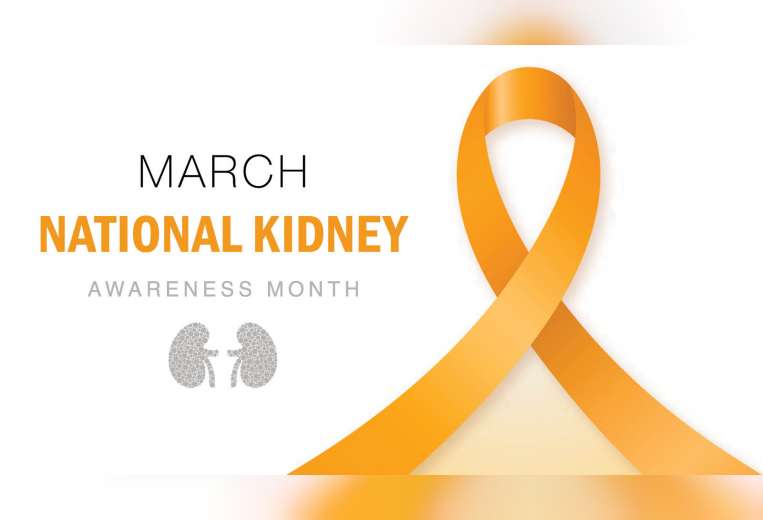Keeping your kidneys healthy
 Posted by Megan Trippi
Posted by Megan Trippi

Kidneys work hard to maintain the body’s health, so this month - National Kidney Month - get to know and support the ways to keep them functioning properly. According to the National Kidney Foundation, one in three Americans is at risk for kidney disease and at a greater risk if they have diabetes, high blood pressure, family history of kidney failure or are over the age of 60.
Early detection and treatment can slow the progression of kidney disease, so getting tested early helps to ensure kidneys can perform their roles of regulating the body’s fluid levels, activating vitamin D for healthy bones, filtering wastes from the blood, directing production of red blood cells, regulating blood pressure and keeping blood minerals in balance.
The National Kidney Foundation states more than 37 million American adults are living with kidney disease and may not even know it, so they shared 10 Signs You May Have Kidney Disease.
If one experiences symptoms, it might be time to seek the referral of a nephrologist, who specializes in the diagnosis and treatment of kidney disease. Nephrology is extremely necessary, and these specialists not only focus on the diagnosis and treatment of kidney conditions, but they also train to help manage how kidney dysfunction can impact the rest of the body.
As with many specialties, nephrology is seeing an increase of people needing care and a decrease in the number of physicians entering the specialty. Years ago, it was a sought-after profession. Nephrologists Tom F Parker III, MD and Richard J. Glassock MD wrote in Nephrology News & Issues, "It was one of the most challenging and satisfying of the internal medicine specialties; a premier thinking person’s profession. The curious physician vied for much-sought-after fellowship openings. The opportunities in academia and clinical practice were without boundaries, creating the ’doctor’s doctor.’"
The once attractive specialty started seeing new lows, fewer fellowship applications and unfilled programs even at prestigious universities. This shift led Drs. Parker and Glassock to propose four pathways for young nephrologists to pursue to make it more attractive and provide greater balance in their lives:
- Oversight of chronic care: Manage patients with chronic kidney disease before starting dialysis.
- Consultative outpatient and hospital care, including intensivist training: Focus on the diagnosis and management of metabolic disorders, fluid and electrolyte disorders.
- Transplantation: Monitor patient pre-transplant and post-transplant.
- Clinician-scientist-investigator: Focus on fundamental sciences, such as molecular and cell biology, emerging nanotechnology and synthetic biology.
As you work with your organizations to fill nephrology openings and talk to nephrologists and nephrology nurses, keep these four pathways in mind and see if you can help provide balance or focus to young fellows entering the field or new specialists wanting to help treat kidney disease and improve kidney function in patients.
Recruiting wisely for nephrologists and nephrology nurses can better the lives of millions of Americans and help treat kidney disease.
For more information on kidney disease diagnosis and prevention and National Kidney Month, visit https://www.kidney.org/content/national-kidney-month.

